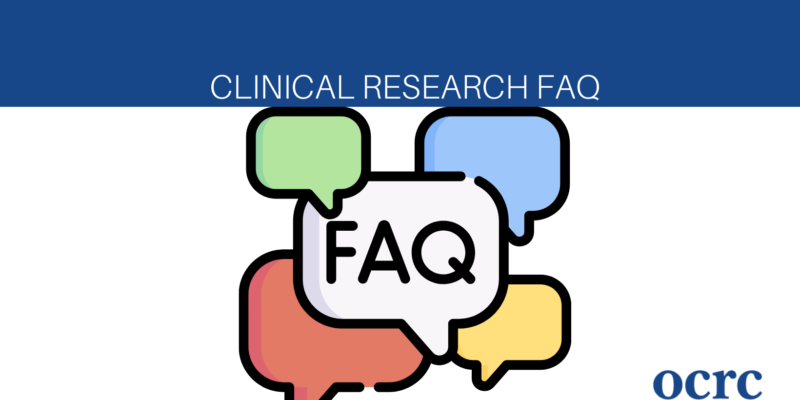
If you are new to the world of clinical trials, the terminology and procedures can be unfamiliar and even intimidating. The good news is that every medication that undergoes a clinical trial has been shown to be safe during extensive testing in preclinical trials (animal studies). To further explain the clinical research process, we’ve assembled some simple questions and answers to walk you through how it works.
Clinical trials are studies conducted by clinical researchers in order to advance medical knowledge and develop new treatments/medications. Clinical trials, or research conducted through human volunteers, explore a variety of topics ranging from the use of daily vitamins to cancer treatments.
The length of a clinical study varies according to what is being studied. Studies range from several weeks to several years. Depending on the phase of the study, a participant may or may not be part of the entire study. Participants will always be informed of length of the study and ideal participation time prior to enrolling.
Advances in medical technology would be impossible without clinical trials; clinical trials are impossible without volunteers. Participating in a clinical trial can also make you part of a process that will help to improve the health of millions.
Before enrolling in a clinical trial, potential participants are evaluated to ensure that they meet the volunteer requirements (age, gender, location, medical history, etc.). They should also discuss clinical trial involvement with their usual health care provider. This ensures that there will be no conflicts with ongoing medications or treatments.
Whether or not you get paid—and the amount you receive—for participating in clinical trials depends on the study being conducted. Factors include participant’s time and energy spent on the trial, amount of traveling associated and the phase of the study. Rates are generally determined by the study’s principal investigator
Informed consent is a process used by researchers to communicate with potential participants about the study. This also provides participants with all necessary information, ensuring that the participant understands what the trial entails, and stresses that participation is always voluntary.
If you are thinking of joining a clinical trial, it doesn’t hurt to take the time to get answers to some important questions.
Placebos are harmless, inactive “medications” that are sometimes used in place of the real medication. Participants aren’t told whether the treatment they are using is a placebo or not. This is to maintain consistency with the control and dependent factors by preventing bias or imagined results on behalf of the participant.
Randomization is when treatments are selected by chance, not a choice, in order to prevent the results from being skewed. If the researcher or participant is allowed to choose who receives a new treatment, the results may be influenced, subconsciously or not. Randomization also reduces the occurrence of bias; without it, a doctor may inadvertently choose a patient that they think is more likely to benefit from the treatment.
ClinicalTrials.gov and CenterWatch.com provide listings for clinical trials which are recruiting participants. Additionally, your own doctor and/or community hospital may be involved in clinical trials. You can always contact us to inquire about current research volunteer opportunities.
